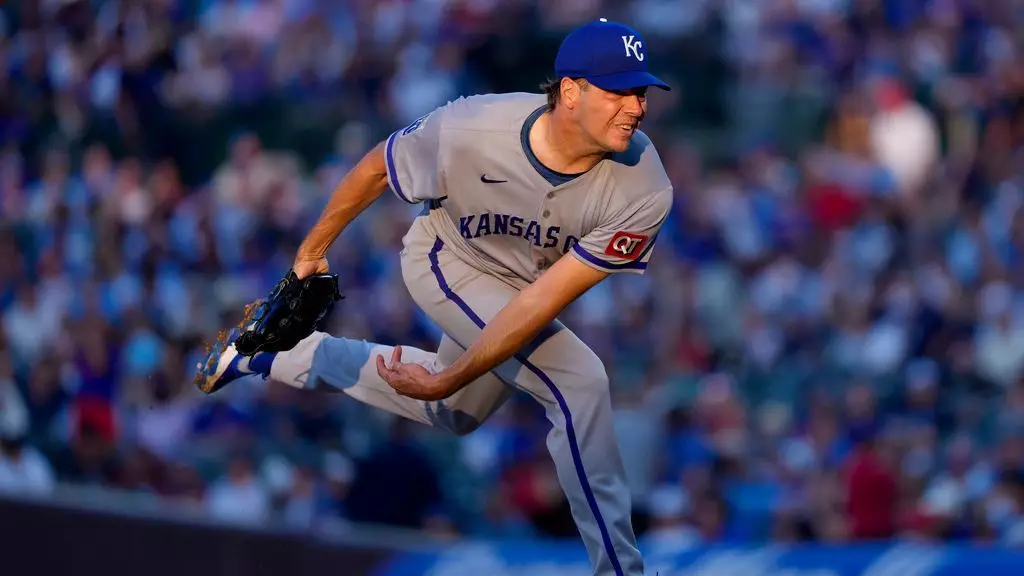In the world of professional sports, few stories resonate with as much admiration and awe as that of a seasoned athlete defying age-related expectations. Rich Hill’s recent return to the big leagues exemplifies the indomitable human spirit, reminding us that passion and dedication can transcend chronological limits. At 45 years old, Hill stepped onto the mound at Wrigley Field, making him the oldest active player in Major League Baseball—a remarkable milestone that challenges conventional notions about athletic longevity and aging.
This comeback, however, was not without its hurdles. The natural rustiness that accompanies a lengthy absence was evident in Hill’s performance. Facing the Chicago Cubs, Hill allowed three runs over five innings, a modest result considering the context of his extended time away from regular MLB action. His outing was characterized by moments of struggle, notably in the second inning when he labored through 31 pitches, surrendering unearned runs due to defensive lapses. Yet, amid these challenges, Hill’s resilience shone through, exemplifying a willingness to endure short-term setbacks for the sake of sustained passion.
Beyond the Numbers: The Motivation Behind the Comeback
Hill’s story raises compelling questions about motivation and purpose. Unlike many players driven solely by contracts or accolades, Hill’s pursuit appears rooted in love for the game—a motivation that sustains him well into his forties. His debut for the Royals, his 21st season in the majors, underscores a career characterized by relentless pursuit of excellence, adaptability, and a genuine affection for baseball.
The fact that Hill was reactivated from Triple-A Omaha reflects a deliberate effort by Kansas City to tap into his veteran wisdom and experience. His presence on the roster is more than symbolic; it’s a testament to his unwavering commitment. The Royals’ decision to designate other players for assignment and to option a reliever to Omaha indicates strategic roster moves, but Hill’s inclusion signifies a belief in the value of seasoned mentorship and leadership for a relatively young team.
Implications for Aging Athletes and the Future of Sports
Hill’s performance on the mound challenges the traditional definitions of physical and mental limitations. While his specific metrics—allowing six hits and walking two—may not be stellar, they serve as a testament to perseverance rather than failure. His ability to throw 90 pitches, built up through rigorous preparation, exemplifies how dedication can mitigate age-related decline when combined with experience and passion.
Furthermore, Hill’s appearance signifies a shift in how teams might view veteran players. The importance of leadership, mental toughness, and a seasoned perspective is increasingly recognized in modern sports dynamics. His presence brings value beyond statistics, fostering a culture of resilience and exemplifying that age, if managed well, need not be a barrier to continued excellence.
The Broader Message: Passion Unbound by Limits
Hill’s journey underscores a vital truth: the love of the game is a powerful motivator that can push individuals to defy odds. His return is not merely a career milestone but a profound statement about human resilience. It encourages aspiring athletes and fans alike to believe that obstacles—be they age, injury, or setbacks—are obstacles only if you let them define your limits.
In a sport that often celebrates youth and peak performance, Hill’s story adds a refreshing perspective—one where perseverance, passion, and unyielding dedication can carve out impactful moments irrespective of age. His ongoing pursuit of excellence is a reminder that, sometimes, the most inspiring stories are not about breaking records but about refusing to let age diminish the fire inside.

